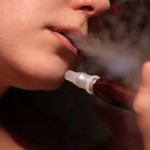The Post traumatic Stress Disorder (PTSD) is very common amongst those who have experienced the trauma like being in war, being sexually assaulted etc. But now a new study at John Hopkins shows that the PTSD symptoms are also common amongst those who have been at the ICU for medical situations.
One in three people who survived stays in an intensive care unit (ICU) and required use of a mechanical ventilator showed substantial post-traumatic stress disorder (PTSD) symptoms that lasted for up to two years, according to a new Johns Hopkins study of patients with acute lung injury.
Because acute lung injury (ALI) — a syndrome marked by excessive fluid in the lungs and frequent multi-organ failure — is considered an archetype for critical illness, the researchers suspect PTSD is common among other ICU survivors as well.
The study was extensive and was done over a two years period.
For the study, the Johns Hopkins team observed 520 mechanically ventilated patients with ALI, recruited from 13 ICUs at four Baltimore hospitals between October 2004 and October 2007. Fifty-three percent survived their hospitalization, and 186 patients had at least one research visit over the subsequent two-year follow-up period.
The researchers found that 66 of the 186 patients (35 percent) had clinically significant symptoms of PTSD, with the greatest apparent onset occurring by the initial, three-month follow-up visit. Sixty-two percent of the survivors who developed PTSD still had symptoms at their two-year visit. Half of this same group was taking psychiatric medications, and 40 percent had seen a psychiatrist in the two years since being hospitalized with ALI.
Since the PTSD impacts the recovery from illness due to depression that sets in; this finding points to the need for regular and sustained engagement with the patients who have been treated in the ICU.
The symptoms and the impacts are the following in PTSD:
1. “Reliving” the event, which disturbs day-to-day activity
- Flashback episodes, where the event seems to be happening again and again
- Repeated upsetting memories of the event
- Repeated nightmares of the event
- Strong, uncomfortable reactions to situations that remind you of the event
2. Avoidance
- Emotional “numbing,” or feeling as though you don’t care about anything
- Feeling detached
- Being unable to remember important aspects of the trauma
- Having a lack of interest in normal activities
- Showing less of your moods
- Avoiding places, people, or thoughts that remind you of the event
- Feeling like you have no future
3. Arousal
- Difficulty concentrating
- Startling easily
- Having an exaggerated response to things that startle you
- Feeling more aware (hypervigilance)
- Feeling irritable or having outbursts of anger
- Having trouble falling or staying asleep
You might feel guilt about the event (including “survivor guilt”). You might also have some of the following symptoms, which are typical of anxiety, stress, and tension:
- Agitation or excitability
- Dizziness
- Fainting
- Feeling your heart beat in your chest
- Headache












